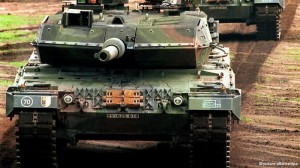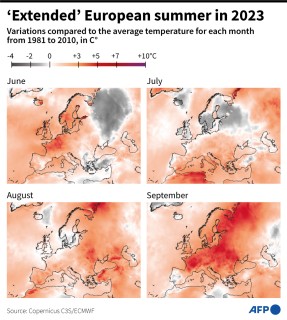An annual report by Sweden’s SIPRI research institute has identified a slight year-on-year reduction in global arms sales for 2012. The report ranks the 100 most successful companies selling military equipment.


The Stockholm International Peace Research Institute (SIPRI) published its SIPRI Top 100 league table on Friday. Overall, revenue for the world’s 100 top arms dealers dropped by 4.2 percent in 2012 compared to the previous year.
SIPRI’s top 100 companies generated $395 billion (around 290 billion euros) through the sale of weapons and military equipment. That figure is roughly equivalent to the 2012 gross domestic product of countries like Austria, South Africa or Venezuela.
SIPRI cautioned that the reduction in overall sales, following a similar dip in 2011, could be misleading: the institute does not include the booming Chinese arms industry on its list, saying it does not have sufficiently reliable data to do so.
Nine of the top 13 companies on SIPRI’s list hailed from the United States, with Lockheed Martin and aerospace giant Boeing first and second. US firms also accounted for 58 percent of all sales by the top 100 companies. Britain’s BAE Systems was the best-placed European firm in third. Airbus maker EADS was seventh overall, with Italy’s Finmeccanica (ninth) and France’s Thales (11th) also challenging the major US producers.
Rheinmetall, in 30th position, was the highest-ranking entirely German company, and one of the comparatively few western businesses to log a year-on-year increase in revenues. Germany’s ThyssenKrupp, better known for its steel business, and Diehl also made the top 100.
Russian boom
The report logged a sharp real-terms increase in sales of 28 percent for Russian weapons manufacturers. The Almaz Antei company, which managed a 41-percent spike in revenue, jumped to 14th place in the SIPRI table – the highest position ever held by a Russian manufacturer.
SIPRI attributed these increases to the Kremlin’s $700-billion State Armaments Plan, an effort to modernize the country’s military between 2011 and 2020.
“The Russian arms industry is gradually reemerging from the ruins of the Soviet industry,” Sam Perlo-Freeman, director of SIPRI’s military expenditure and arms production program, said. “Nonetheless, the industry is still plagued by outdated equipment, inefficient organization and widespread corruption, which will continue to limit Russia’s ability to compete technologically with the West.”
Created by Sweden’s parliament in 1966, SIPRI was tasked with monitoring military spending and global conflicts. The organization began its annual ranking of the top 100 arms dealers in 1990. SIPRI compiles its reports with a one-year delay, saying this is necessary to obtain reliable data on the sometimes secretive industry.
(Deutsche Welle, Reuters, dpa, AFP)
http://www.dw.de/global-arms-trade-shrinks-in-2012-us-and-european-companies-dominate/a-17399812

